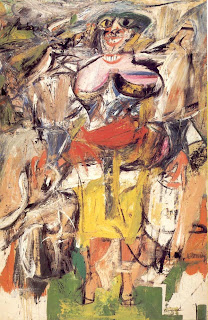Agua de Mayo
 This must be the most books I have bought in a month. Not included in the photo are Writer's Block by Jason Rekulak, Beyond the Pleasure Principle by Sigmund Freud, and The Technique of the Love Affair by Doris Langley Moore and Norrie Epstein, which have not arrived yet from Amazon when I took the photo. Also not in the photo is Warrior: An Autobiography by Ariel Sharon, which I have given to the man in my life as a gift.
This must be the most books I have bought in a month. Not included in the photo are Writer's Block by Jason Rekulak, Beyond the Pleasure Principle by Sigmund Freud, and The Technique of the Love Affair by Doris Langley Moore and Norrie Epstein, which have not arrived yet from Amazon when I took the photo. Also not in the photo is Warrior: An Autobiography by Ariel Sharon, which I have given to the man in my life as a gift.About half of the books in the pile were bought from two local Book Sale stores in Naga. When I arrived for my three-week break, I saw that I have brought with me only three books, and so I panicked and drove over to the mall and bought a total of fifteen books, one of them a gem of a find, Here at the New Yorker by Brendan Gill.
I loved it! It provided a rare glimpse of James Thurber, Truman Capote, John O'Hara, Dorothy Parker, and the rest of New York literatti. I was hooked at the first sentence, which is: "Happy writers have histories shorter even than happy families." But it's not a sad and disenchanting memoir at all! It's funny, gossip-y, cosmopolitan, and acerbic, and shows never-before published pages of hilarious memos and query sheets, revealing life at The New Yorker that was.
Brendan Gill joined the magazine in 1939 when he was in his early twenties, and there had a long and fun-filled career, able to afford to comment on the lifestyles of the "poorer" writers and artists of the magazine because he himself had a rich and successful father who catered to his every whim. But hardly ditsy, Brendan Gill also gives some brilliant passages, and one of my favorites is this: "If the unexamined life is not worth living, the unexamined past is not worth possessing; it bears fruit only by being held continuously up to the light, and is as changeable and as full of surprises, pleasant and unpleasant, as the future."
The memoir was published in 1975, and the copy I have is a paperback with brittle covers that had already crumbled at the corners. And to think I would not have found this book if I didn't forget to bring enough books with me from my shelves Manila! Ah, the wonderful things we find by accident, when we least expect to be hit by something beautiful.
I also found two books that were in my Amazon shopping cart, West With The Night by Beryl Markham and Kite Runner by Khaled Hosseini. The Hosseini book cost 200 pesos ($4, at 49 pesos to $1) and the Markham biography cost 55 pesos ($1.12). Look at how much they cost when bought new from Amazon, excluding shipping.


It almost made me swear off Amazon -- but not quite. Right after I got home from the fifteen-book shopping spree at the book sales, I logged on to Amazon, deleted these two books from my shopping cart, and bought the eleven books left, including Looming Tower by Lawrence Wright, which is the 2007 Pulitzer Prize winner for General Non-Fiction, and which I need for work, and The Madwoman In The Attic by Sandra M. Gilbert and Susan Gubar, a book I have always wanted to read ever since Paz Verdades Santos told me that she observed my writing to be exhibiting symptoms of that sensibility. I also bought a new copy of Strunk and White: The Elements of Style to replace my ancient, well-worn copy. I am looking forward to reading them all, and have even finished reading five of them during my wonderful three-week break.
I enjoyed my May. It rained books in my life this month. The real rains of the wet season have also begun, and Agua de Mayo, the first heavy rain of May, happened on May 22. I stood in my bedroom in Bicol at 6:43 a.m. looking out of the large bay window into the rain, the sound of it deafening, uplifting, reassuring. Memories, good and bad, came crashing down on me but strangely enough, I felt happy as ever, strong as ever. Suddenly the rain has become beautiful to me, and I am more beautiful because of new learning and new strength. The summer has ended. May has ended. Let the rains come.

























